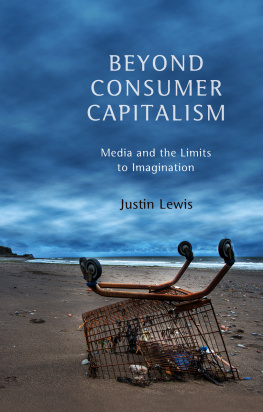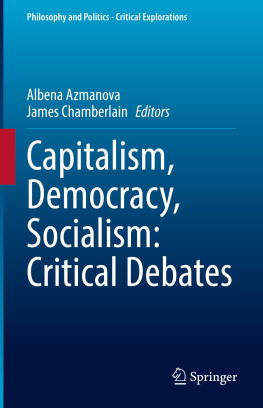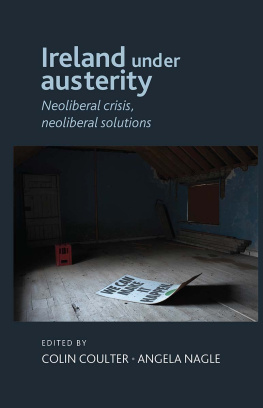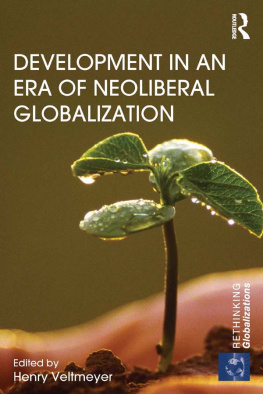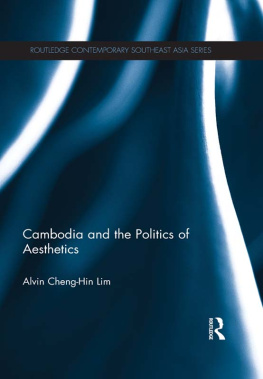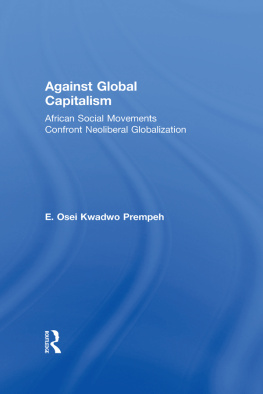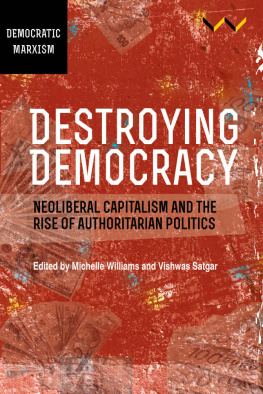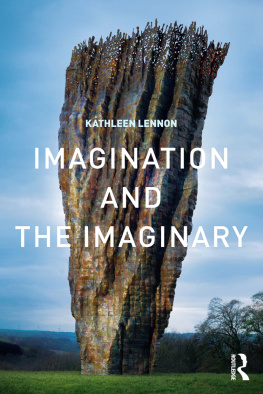
The Neoliberal Imagination
This book presents a polemical account of the historical development of the neoliberal imagination. Inspired by the thought of Frederic Jameson, Bernard Stiegler, and Timothy Morton, it argues that the evolution of virtual and information technologies has transformed the ideological imaginary of capitalism. Owing to the inseparability of the process of commodification from developments in the sphere of media technology particularly the rise of the digital networks through which information is processed and disseminated the aesthetic forms of the neoliberal imaginary are not external to the accelerated productivity and adaptability of human beings. Rather, they are essential both to the vision of progress that informs the technoscientific organization of capitalist society and to the practical formation of the self that takes place within its networks. A snapshot of the evolving world picture that is formed in the neoliberal imagination as articulated in its particular regime of capitalization, The Neoliberal Imagination will appeal to scholars of social theory and social philosophy with interests in neoliberalism.
Ross Abbinnett is Senior Lecturer in Social and Political Theory at the University of Birmingham, UK. He is the author of Truth and Social Science , Culture and Identity , Marxism After Modernity, Politics of Happiness , and The Thought of Bernard Stiegler .
Media, Culture and Critique: Future Imperfect
Series Editors: Ross Abbinnett (University of Birmingham) and Graeme Gilloch (Lancaster University)
A platform for new works devoted to exploring contemporary crises and drawing on and developing different critical traditions such as neo-Marxism, feminism, postcolonialism, queer theory, poststructuralism, critical discourse analysis, and ecological and environmental approaches Media, Culture and Critique: Future Imperfect presents theoretically informed and politically engaged studies that share a fundamental concern with interrogating the discrepancies between the potentialities and rhetorics of new technologies and their actual utilization in the service of hegemonic interests. Whether with respect to 21st century capitalism and new political economies of culture, global mediascapes and digital economies, urban transformation and militarization, the proliferation of consumption and media sites and spaces, biotechnologies and the body, or the exploitation and destruction of Nature, the series welcomes theoretically driven explorations of the technological and mediatized future, and the cultural manifestations of neoliberalism.
The Thought of Bernard Stiegler
Capitalism, Technology and the Politics of Spirit
Ross Abbinnett
Acting Politics
A Critical Sociology of the Political Field
Alfredo Joignant
The Neoliberal Imagination
Politics, Aesthetics, and Economics in the Evolution of Hyper-Industrial Capitalism
Ross Abbinnett
For more information about this series, please visit: https://www.routledge.com/Media-Culture-and-Critique-Future-Imperfect/book-series/FI
The Neoliberal Imagination
Politics, Aesthetics, and Economics in the
Evolution of Hyper-Industrial Capitalism
Ross Abbinnett
First published 2021
by Routledge
2 Park Square, Milton Park, Abingdon, Oxon OX14 4RN
and by Routledge
52 Vanderbilt Avenue, New York, NY 10017
Routledge is an imprint of the Taylor & Francis Group, an informa business
2021 Ross Abbinnett
The right of Ross Abbinnett to be identified as author of this work has been asserted by him in accordance with sections 77 and 78 of the Copyright, Designs and Patents Act 1988.
All rights reserved. No part of this book may be reprinted or reproduced or utilised in any form or by any electronic, mechanical, or other means, now known or hereafter invented, including photocopying and recording, or in any information storage or retrieval system, without permission in writing from the publishers.
Trademark notice : Product or corporate names may be trademarks or registered trademarks, and are used only for identification and explanation without intent to infringe.
British Library Cataloguing-in-Publication Data
A catalogue record for this book is available from the British Library
Library of Congress Cataloging-in-Publication Data
Names: Abbinnett, Ross, author.
Title: The neoliberal imagination: politics, aesthetics and economics in the evolution of hyper-industrial capitalism/Ross Abbinnett.
Description: Abingdon, Oxon; New York, NY: Routledge, 2021. | Series: Media, spectacle and critique: future imperfect | Includes bibliographical references and index.
Identifiers: LCCN 2020023208 (print) | LCCN 2020023209 (ebook) | ISBN 9780367186913 (hardback) | ISBN 9780429197635 (ebook)
Subjects: LCSH: NeoliberalismPhilosophy. | CapitalismPhilosophy.
Classification: LCC HB95 .A2147 2021 (print) | LCC HB95 (ebook) | DDC 330.12/2dc23
LC record available at https://lccn.loc.gov/2020023208
LC ebook record available at https://lccn.loc.gov/2020023209
ISBN: 9780367186913 (hbk)
ISBN: 9780429197635 (ebk)
Typeset in Times New Roman
by Deanta Global Publishing Services, Chennai, India
For aesthetics doesnt bother much about time; it goes just as quickly whether in jest or in earnest.
Sren Kierkegaard, Fear and Trembling
Contents
PART 1
Liberalism and modernity
PART 2
Neoliberal transformations
Frederic Jameson and cultural critique
It is now over 30 years since the publication of Fredric Jamesons Postmodernism, or, The Cultural Logic of Late Capitalism. Famously, he argued that the French tradition of critical thought (embodied in the work of Derrida, Baudrillard, and Lyotard) was essentially a reflection of the overheated play of images that resulted from the influence of media and communications technologies on the process of capitalization . In Jamesons analysis, the reign of contingency in social relationships, the fracturing of the self, and the destruction of collective life are conceived as practical outcomes of the media-technological expansion of global economy. The presentation of such effects in the language of deconstruction, simulation, and libidinal economy is conceived as the ideological reflex of a highly flexible mode of capitalization that constantly extends its influence over human culture and desire (Jameson, 1995: xii). According to Jameson, this relationship between capital and popular aesthetics lies at the heart of the postmodernist movement: for it is only insofar as the life of the schizoid consumer is validated by the ideology of aesthetic self-invention, that the constant expansion of markets and economic growth can be driven forward (Jameson, 1995: x). Capital and aesthetics have become so closely entwined that to study the global economy without reference to the media-technological staging of culture is to miss something fundamental about the psychical reproduction of the commodity form itself. Postmodern capitalism, in other words, is a mutual solicitation of money, aesthetics, and desire that has been engineered by the state and dominant economic corporations; it is a way of constantly re-engaging the individual with a worldview in which everything seems possible, and where the material limitations of life melt away into the realm of simulation. This idea of an overarching ideology, or worldview, through which the economic contingencies of global capitalism are mediated is the starting point of my account of the neoliberal imagination. For what Jameson sets out in Postmodernism is, in fact, the impossibility of understanding the contradictory reality of neoliberalism (its economy of stasis and mobilization, progress and reaction, life and death, past and future) without giving a coherent account of the cultural-aesthetic forms through which it reconfigures the desires of the atomistic individual (Jameson, 1995: 16).


